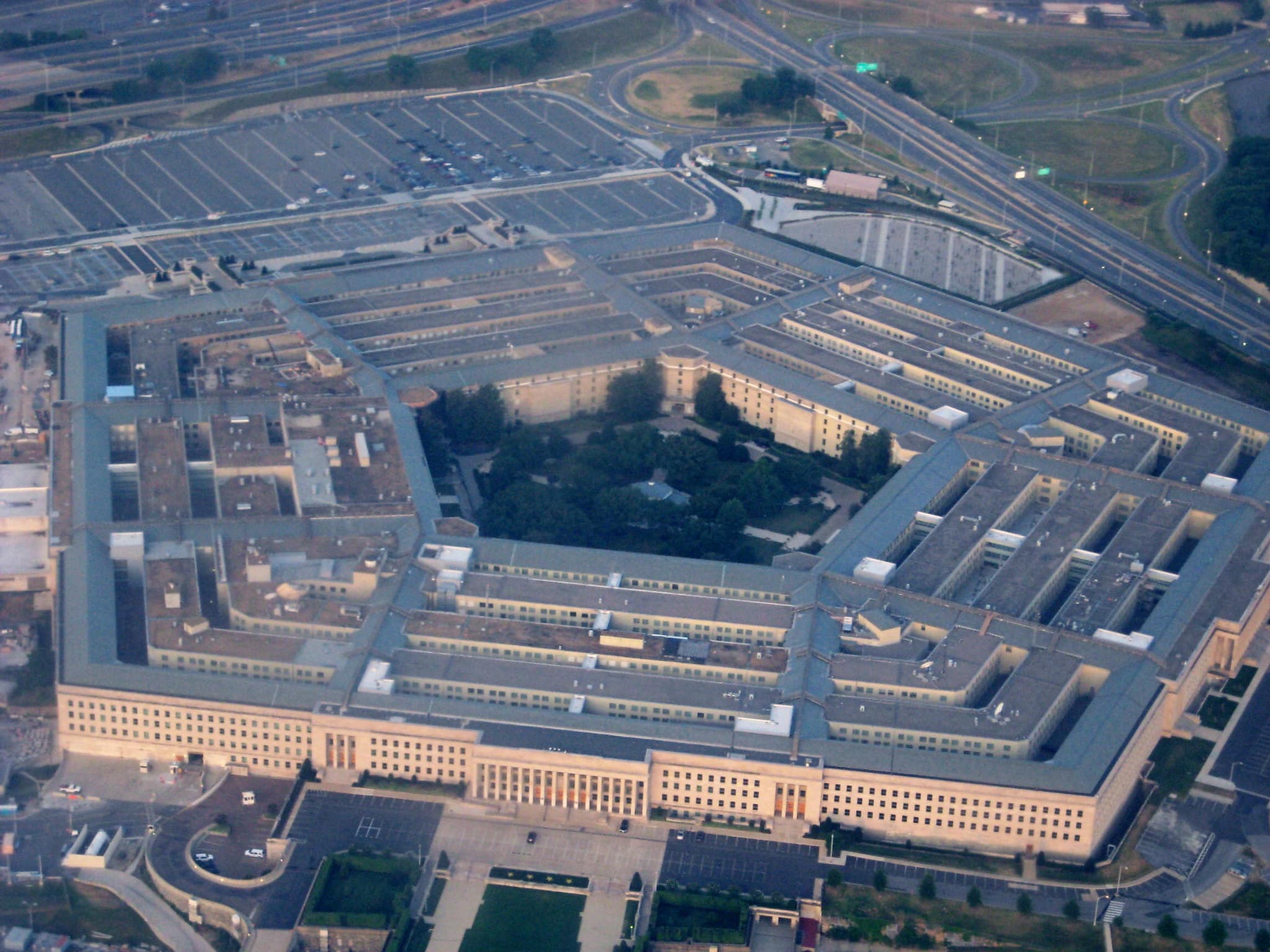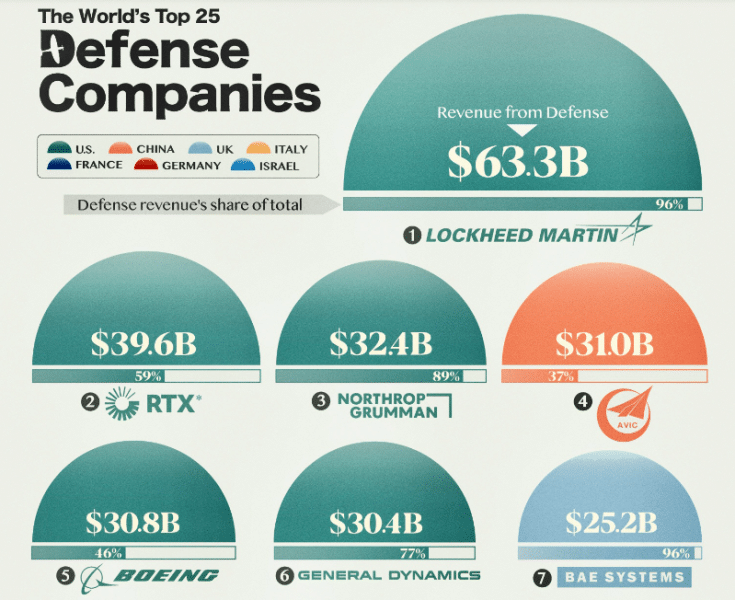A bipartisan group of lawmakers overseeing the Pentagon’s spending has drawn criticism after pushing for provisions in next year’s defense budget that both colleagues and experts warn would make it even easier for military contractors to dramatically overcharge the government.
Sections 811 and 812 of the proposed National Defense Authorization Act for 2025 (NDAA) would significantly relax pricing rules for private contractors, exempting many products from competitive pricing requirements and allowing contractors to charge based on recent prices rather than fair market value analyses.
The controversial provisions, which some experts describe as everything contractors would want, come just a year after major defense contractors like Lockheed Martin, Raytheon, Boeing, and TransDigm were exposed by journalists from CBS News for grossly overcharging the Pentagon on a wide range of weapons and equipment.
“These provisions are terrible policy and [the military] industry might as well have written them,” Julia Gledhill, a research associate at the nonpartisan Stimson Center think tank, told the investigative journalists at The Lever. “It’s really clear that [military contractors] don’t want us to know their profit margins, so they’re just trying to further conceal their costs.”
Sections 811 and 812 Would Enrich Contractors At Great Cost
The draft NDAA provisions are raising alarms among watchdog groups and some lawmakers who have been denouncing this practice for years, which involves the military-industrial complex’s tendency to exploit the federal government’s lack of oversight.
The CBS News investigation found rampant overcharging among contractors on everything from shoulder-fired missiles to fighter jet parts.
Meanwhile, Bernie Sanders wrote in an opinion article published earlier this year that one company, TransDigm, was caught slapping the Pentagon with a ridiculous and unlawful 4,451% markup.
“In the 1990s, there were 51 major defense contractors in this country. Today, they have consolidated into five giants: Lockheed Martin, RTX, Boeing, General Dynamics, and Northrop Grumman. These big five can use the monopoly positions granted them by the United States government to reap enormous profits. In fact, in fiscal year 2022, they shared more than $118 billion in Pentagon contracts,” Sanders commented.
The Department of Defense (DOD), the Navy, and the Air Force have all failed their latest audits and their records show massive discrepancies between their books and actual inventories. In fact, the DOD has never passed an audit. These audits were only mandated starting in 2018, but failing six audits in a row and regularly failing to account for literally trillions of dollars is still rather shocking.
Sanders highlighted that the DOD specifically failed to account for more than 60% of its mammoth-sized $3.8 trillion in assets. Meanwhile, the Navy found that it had $4.4 billion in untracked inventory in a recent audit.
“The Department believes the problem in obtaining data from contractors to support fair and reasonable prices may be more prevalent than what has been collected to date,” the Pentagon acknowledged in a 2023 report.
Yet instead of directly facing and solving the issue, critics argue that Congress is offering contractors a lifeline by rolling back key safeguards and pricing rules in the NDAA.
No Other Reason for These Provisions Beyond “Helping Contractors Make More Money”
Provision 811 is pretty baffling if you don’t consider the influence of defense contractors, lobbyists, and PACs. It would greatly expand which products can be deemed “commercial” and thus exempted from requirements to disclose certified pricing data to justify their cost. Previously, commercial exceptions were limited to mass consumer goods. However, the new definition would cover component parts of larger military products as well as associated services.
“Once you have a commercial designation, you do not have to give certified costs and pricing data,” Gledhill explained. “The theory being that if it’s commercial, it’s price competitive, but what we see are a lot of military items, equipment, and spare parts that have no commercial uses, and have in fact never been sold to the public,” she added.
She continued: “… contractors don’t actually have to give costs and pricing data for them, which really expands their ability to price gouge and fleece the taxpayer.”
Meanwhile, Provision 812 further loosens oversight requirements by allowing Pentagon purchasers to rely on “recent” pricing within the past 12 months rather than conducting a thorough market analysis to establish fair costs.
There is absolutely no clear reason to do this except to benefit defense contractors, forcing taxpayers to foot the bill. “I don’t see what the point of this is beyond helping contractors make more money,” Gledhill added.
Often, these kinds of obviously negative provisions are snuck into bills as quietly as possible, trying to keep them out of the public eye, and this has worked many times.
A recent example was an attempt by Ted Cruz and three other politicians to sneak in a provision that would slash automatic airline refunds into a routine FAA bill, clearly benefitting only airlines at the cost of consumers. Interestingly enough, the gaggle of Congresspeople who pushed this provision ‘happened’ to be four of the top recipients of campaign cash from airline industry donors, receiving $423,777.86. Luckily for consumers, this provision was quietly taken out after an uproar from journalists, experts, and voters.
The Top 5 Defense Giants Keep Almost Half of the Pentagon’s Budget
This attempt to erode the Pentangon’s pricing requirements and procurement proceedings comes on the hills of the latest billionaire request for funds from the Biden administration for the country’s defense budget.
A total of $886 billion was requested for military spending in 2024. For some defense contractors, this amount was mouth-watering – especially if they manage to bypass all controls and keep overcharging.
Over the past decade, these five giants – Lockheed Martin, Raytheon, Boeing, General Dynamics, and Northrop Grumman – have received over half of the Pentagon’s budget spending. The war in Ukraine has further aided the bottom line of these companies.
Shay Assad, who negotiated weapon deals for years and worked for Raytheon at some point, brings interesting insights about the issue.
“In the ’80s, there was intense competition amongst a number of companies. And so the government had choices. They had leverage. We have limited leverage now,” he told CBS News last year.
“They [The Pentagon] were convinced that they could rely on the companies to do what was in the best interests of the war fighters and the taxpayers,” Assad stressed.
Assad mentioned the cost of shoulder-fired missiles being sent to Ukraine, which were supplied for just $25,000 each in 1991. Now, it costs over $400,000 to ship and deliver just one of these missiles to the besieged country.
Even after accounting for inflation and technological advancements, this price increase is considered beyond outrageous.
With the Ukraine war having no end in sight (not to mention the bloody conflict in Gaza), these companies are set to continue to rake in tax dollars, even if these provisions are passed. If they do manage to pass, however, each and every major contractor will likely be able to mark up prices for certain items tremendously.
If allowed at a large enough scale, this could easily help push the value of top defense stocks up significantly. Watch out for further news on these provisions as the stocks could shoot up as soon as the bill passes in this state (if it does).
America’s Age-Old Tradition of War Profiteering Continues
“Taxpayers pay dramatically more. Shareholders get richer,” Senator Sanders wrote in his recent op-ed decrying the “war profiteering” that Congress has long contributed to. A bipartisan group of senators including Sanders has demanded an investigation by the Biden administration to uncover unlawful pricing practices following the CBS News exposé.
However, the House Armed Services Committee behind the NDAA appears to be heavily influenced by those same defense interests. So far in this election cycle, its members have received over $3.8 million from military industry PACs and individuals, according to data sourced by The Lever.
Also read: US Defense Stocks Soar After $95 Billion Aid Package Passes – Is There Room to Run?
Committee chair Mike Rogers (R-AL) has accepted nearly $2 million throughout his career while ranking Democrat Adam Smith (D-WA) has pocketed $1.5 million in campaign cash. Neither responded to requests for comment on the contractor pricing provisions.
“As a member of the House Armed Services Committee, I’m disappointed to see provisions in the NDAA that would allow contractors to further obscure pricing data,” said Rep. Ro Khanna (D-CA). “This would lead to more inflated costs and waste taxpayer money.”
“This would lead to more inflated costs and waste taxpayer money when we could be investing it instead on a modern national security to actually keep us safe and domestic priorities like education and healthcare.”
What Happens Next?
With evidence at hand of overpricing and other deceptive practices, experts and lawmakers are calling for a change. There is an effort spearheaded by Sanders to revive the so-called Truman Committee – a World War II special panel that helped reduce war profiteering practices.
However, others are aiming for a complete overhaul, pointing to the Pentagon’s inability to pass a financial audit as evidence of systemic mismanagement and oversight failures.
“If you’re happy with companies gouging you and just looking you right in the eye and say, ‘I’m gonna keep gouging you because I know you don’t have the guts to do anything about it,’ then I guess we should just keep doing what we’re doing,” Assad argued.
The House Armed Services Committee is scheduled to debate amendments to the NDAA on Wednesday. With pressure escalating, all eyes will be on whether lawmakers move to put an end to these harmful practices or further enable them.
Don’t get your hopes up, however, as the immense influence of Defense lobbyists and PACs rarely (if ever) loses on Capital Hill.

